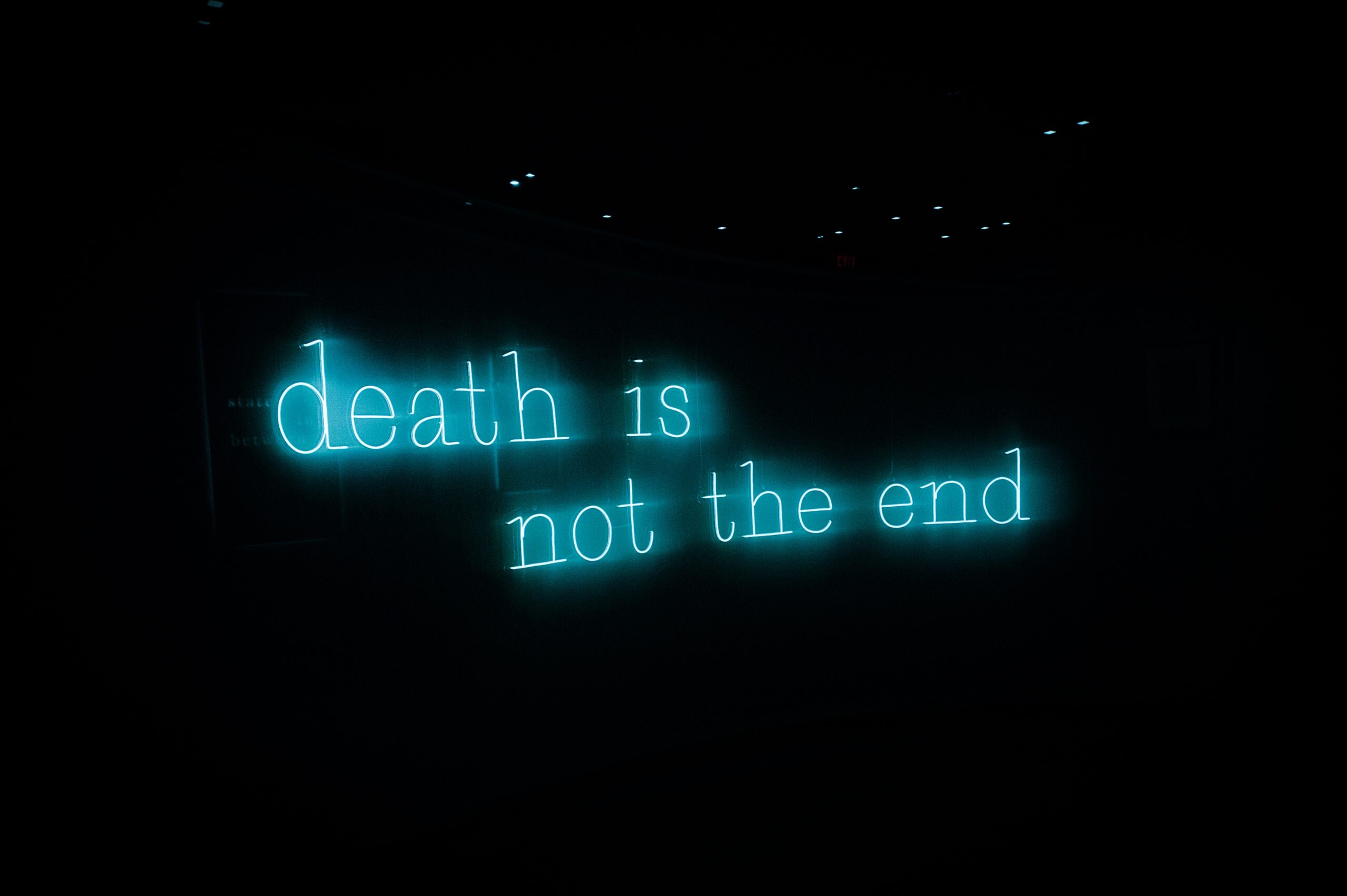| Getting your Trinity Audio player ready... |
Related Study:
Please note that the studies shared on this website are for informational purposes only. Readers are encouraged to critically evaluate the content and not to accept it as absolute or complete without further verification. The views expressed in the studies do not necessarily reflect the opinions of this website.
Mishneh Torah, Repentance Chapter 3 by Rambam
Each and every person has merits and sins. A person whose merits exceed his sins is [termed] righteous. A person whose sins exceed his merits is [termed] wicked. If [his sins and merits] are equal, he is termed a Beinoni. The same applies to an entire country. If the merits of all its inhabitants exceed their sins, it is [termed] righteous. If their sins are greater, it is [termed] wicked. The same applies to the entire world.
If a person’s sins exceed his merits, he will immediately die because of his wickedness as [Jeremiah 30:14] states: “[I have smitten you…] for the multitude of your transgressions.” Similarly, a country whose sins are great will immediately be obliterated as implied by [Genesis 18:20]: “The outcry of Sodom and Amorah is great…. In regard to the entire world as well, were its [inhabitants’] sins to be greater than their merits, they would immediately be destroyed as [Genesis 6:5] relates: “God saw the evil of man was great… [and God said: `I will destroy man….’]” This reckoning is not calculated [only] on the basis of the number of merits and sins, but also [takes into account] their magnitude. There are some merits which outweigh many sins as implied by [I Kings 14:13]: “Because in him, there was found a good quality.” In contrast, a sin may outweigh many merits as [Ecclesiastes 9:18] states: “One sin may obscure much good.” The weighing [of sins and merits] is carried out according to the wisdom of the Knowing God. He knows how to measure merits against sins.
Anyone who changes his mind about the mitzvot he has performed and regrets the merits [he has earned], saying in his heart: “What value was there in doing them? I wish I hadn’t performed them” – loses them all and no merit is preserved for him at all as [Ezekiel 33:12] states “The righteousness of the upright will not save him on the day of his transgression.” This only applies to one who regrets his previous [deeds]. Just as a person’s merits and sins are weighed at the time of his death, so, too, the sins of every inhabitant of the world together with his merits are weighed on the festival of Rosh HaShanah. If one is found righteous, his [verdict] is sealed for life. If one is found wicked, his [verdict] is sealed for death. A Beinoni’s verdict remains tentative until Yom Kippur. If he repents, his [verdict] is sealed for life. If not, his [verdict] is sealed for death.
Even though the sounding of the shofar on Rosh HaShanah is a decree, it contains an allusion. It is as if [the shofar’s call] is saying: Wake up you sleepy ones from your sleep and you who slumber, arise. Inspect your deeds, repent, remember your Creator. Those who forget the truth in the vanities of time and throughout the entire year, devote their energies to vanity and emptiness which will not benefit or save: Look to your souls. Improve your ways and your deeds and let every one of you abandon his evil path and thoughts. Accordingly, throughout the entire year, a person should always look at himself as equally balanced between merit and sin and the world as equally balanced between merit and sin. If he performs one sin, he tips his balance and that of the entire world to the side of guilt and brings destruction upon himself. [On the other hand,] if he performs one mitzvah, he tips his balance and that of the entire world to the side of merit and brings deliverance and salvation to himself and others. This is implied by [Proverbs 10:25] “A righteous man is the foundation of the world,” i.e., he who acted righteously, tipped the balance of the entire world to merit and saved it. For these reasons, it is customary for all of Israel to give profusely to charity, perform many good deeds, and be occupied with mitzvot from Rosh HaShanah until Yom Kippur to a greater extent than during the remainder of the year. During these ten days, the custom is for everyone to rise [while it is still] night and pray in the synagogues with heart-rending words of supplication until daybreak.
When a person’s sins are being weighed against his merits, [God] does not count a sin that was committed only once or twice. [A sin] is only [counted] if it was committed three times or more. Should it be found that [even] those sins committed more than three times outweigh a person’s merits, the sins that were committed twice [or less] are also added and he is judged for all of his sins. If his merits are equal to [or greater than the amount of] his sins committed which were committed more than three times, [God] forgives his sins one after the other, i.e., the third sin [is forgiven because] it is considered as a first sin, for the two previous sins were already forgiven. Similarly, after the third sin is forgiven, the fourth sin is considered as a “first” [sin and is forgiven according to the same principle]. The same [pattern is continued] until [all his sins] are concluded. When does the above apply? In regard to an individual as can be inferred from [Job 33:29] “All these things, God will do twice or three times with a man.” However, in regard to a community, [retribution for] the first, second, and third sins is held in abeyance as implied by [Amos 2:6] “For three sins of Israel, [I will withhold retribution,] but for the fourth, I will not withhold it.” When a reckoning [of their merits and sins] is made according to the above pattern, the reckoning begins with the fourth [sin]. [As mentioned above,] a Beinoni [is one whose scale is equally balanced between merit and sin]. However, if among his sins is [the neglect of the mitzvah of] tefillin [to the extent that] he never wore them even once, he is judged according to his sins. He will, nevertheless, be granted a portion in the world to come. Similarly, all the wicked whose sins are greater [than their merits] are judged according to their sins, but they are granted a portion in the world to come for all Israel have a share in the world to come as [Isaiah 60:21] states “Your people are all righteous, they shall inherit the land forever.” “The land” is an analogy alluding to “the land of life,” i.e., the world to come. Similarly, the “pious of the nations of the world” have a portion in the world to come.
The following individuals do not have a portion in the world to come. Rather, their [souls] are cut off and they are judged for their great wickedness and sins, forever: the Minim, the Epicursim, those who deny the Torah, those who deny the resurrection of the dead and the coming of the [Messianic] redeemer, those who rebel [against God], those who cause the many to sin, those who separate themselves from the community, those who proudly commit sins in public as Jehoyakim did, those who betray Jews to gentile authorities, those who cast fear upon the people for reasons other than the service of God, murderers, slanderers, one who extends his foreskin [so as not to appear circumcised].
Five individuals are described as Minim: a) one who says there is no God nor ruler of the world; b) one who accepts the concept of a ruler, but maintains that there are two or more; c) one who accepts that there is one Master [of the world], but maintains that He has a body or form; d) one who maintains that He was not the sole First Being and Creator of all existence; e) one who serves a star, constellation, or other entity so that it will serve as an intermediary between him and the eternal Lord. Each of these five individuals is a Min.
Three individuals are described as Epicursim: a) one who denies the existence of prophecy and maintains that there is no knowledge communicated from God to the hearts of men; b) one who disputes the prophecy of Moses, our teacher; ‘ c) one who maintains that the Creator is not aware of the deeds of men. Each of these three individuals is an Epicurus. There are three individuals who are considered as one “who denies the Torah”: a) one who says Torah, even one verse or one word, is not from God. If he says: “Moses made these statements independently,” he is denying the Torah. b) one who denies the Torah’s interpretation, the oral law, or disputes [the authority of] its spokesmen as did Tzadok and Beitus. c) one who says that though the Torah came from God, the Creator has replaced one mitzvah with another one and nullified the original Torah, like the Arabs [and the Christians]. Each of these three individuals is considered as one who denies the Torah.
Among Israel, there are two categories of apostates: an apostate in regard to a single mitzvah and an apostate in regard to the entire Torah. An apostate in regard to a single mitzvah is someone who has made a practice of willfully committing a particular sin [to the point where] he is accustomed to committing it and his deeds are public knowledge. [This applies] even though [the sin] is one of the minor ones. For example, someone who has made a practice of constantly wearing sha’atnez or cutting off his sideburns so that it appears that, in regard to him, it is as if this mitzvah has been nullified entirely. Such a person is considered an apostate in regard to that matter. This applies [only] if he [commits the sin] with the intent of angering God. An example of an apostate in regard to the entire Torah is one who turn to the faith of the gentiles when they enact [harsh] decrees [against the Jews] and clings to them, saying: “What value do I have in clinging to Israel while they are debased and pursued. It’s better to cling to those who have the upper hand.” Such an individual is an apostate in regard to the entire Torah.
[The category of] “those who cause the many to sin” includes those who cause them to commit a severe sin like Jeroboam, Tzadok, or Beitus; and also, those who cause them to commit a slight sin, even the nullification of a positive command. It includes [both] those who force others to sin like Menasheh who would kill the Jews if they did not worship idols and those who entice others and lead them astray.
A person who separates himself from the community [may be placed in this category] even though he has not transgressed any sins. A person who separates himself from the congregation of Israel and does not fulfill mitzvot together with them, does not take part in their hardships, or join in their [communal] fasts, but rather goes on his own individual path as if he is from another nation and not [Israel], does not have a portion in the world to come. “Those who proudly commit sins in public as Jehoyakim did,” whether they commit slight sins or severe ones, have no portion in the world to come. Such behavior is referred to as “acting brazen-facedly against the Torah,” for he acted insolently, in open [defiance], without feeling any shame despite the Torah’s words.
There are two categories of “those who betray Jews to gentiles:” one who betrays a colleague to the gentiles so that they may kill him or beat him; and one who gives over a colleague’s money to gentiles or to a person who commandeers property and is, therefore, considered like a gentile. Neither of the two has a portion in the world to come.
“Those who cast fear upon the people for reasons other than the service of God” – This refers to one who rules the community with a strong hand and [causes] them to revere and fear him. His intent is only for his own honor and none of his desires are for God’s honor; for example, the gentile kings.
All the twenty four individuals listed above will not receive a portion in the world to come even though they are Jewish. There are other sins which are less severe than those mentioned. Nevertheless, our Sages said that a person who frequently commits them will not receive a portion in the world to come and [counseled] that these [sins] be avoided and care be taken in regard to them. They are: one who invents a [disparaging] nickname for a colleague; one who calls a colleague by a [disparaging] nickname; one who embarrasses a colleague in public; one who takes pride in his colleague’s shame; one who disgraces Torah Sages; one who disgraces his teachers; one who degrades the festivals; and one who profanes sacred things. When does the statement that these individuals do not have a portion in the world to come apply? When they die without having repented. However, if such a person repents from his wicked deeds and dies as a Baal-Teshuvah, he will merit the world to come, for nothing can stand in the way of Teshuvah. Even if he denies God’s existence throughout his life and repents in his final moments, he merits a portion in the world to come as implied by [Isaiah 57:19] “`Peace, peace, to the distant and the near,’ declares God. `I will heal him.'” Any wicked person, apostate, or the like, who repents, whether in an open, revealed manner or in private, will be accepted as implied by [Jeremiah 3:22] “Return, faithless children.” [We may infer] that even if one is still faithless, as obvious from the fact that he repents in private and not in public, his Teshuvah will be accepted.













